The online 2022 COPPUL Schol Comms SkillShare is on Thursday, April 28. All times below are in Mountain Standard Time (MST). Registration is now open. To register, please visit https://uregina.libcal.com/event/3668117.
| 10:00AM – 10:10AM | Welcome & Introductions Vivian Stieda, COPPUL Executive Director, & Christina Winter, COPPUL SCWG Chair |
| 10:10 AM – 11:10 AM | Presentations The Program for Open Scholarship and Education: Breaking down silos of open practice Stephanie Savage, University of British Columbia Green Open Access: Fading Away? Brianne Selman, University of Winnipeg Untapped Author’s Rights: Figure Reuse Allowances in Content Licenses DeDe Dawson, Kate Langrell and Jaclyn McLean, University of Saskatchewan The Challenge of Teaching the Multidisciplinary Traditional Bibliographical Tools Amid the Changing Landscape of Scholarly Communications Asako Yoshida, University of Manitoba |
| 11:10 AM – 11:20 AM | Break |
| 11:20 AM – 12:00 PM | Panel – Transformative Agreements Dana McFarland, Vancouver Island University Robyn Hall, MacEwan University, Cara Bradley, University of Regina Carmen Kazakoff-Lane, Brandon University Moderator: Christie Hurrell |
| 12:00 PM – 12:40 PM | Schol Comms Resource Sharing: Take a Tip Leave a Trick Ali Moore, Simon Fraser University and Erin May, Thompson Rivers University |
| 12:40 PM – 12:50 PM | Wrap-up + What’s Next? Christina Winter, COPPUL SCWG Chair |
Session descriptions:
The Program for Open Scholarship and Education: Breaking down silos of open practice
Stephanie Savage, University of British Columbia
A multi-unit group of colleagues at UBC have created and run POSE, the Program for Open Scholarship and Education. This cohort-based, open, online course is offered once a year for anyone who has an interest in learning more about open scholarship. The course covers three units: open access, open education, and open research, providing a solid introduction to each area. This course was developed in response to the growing awareness at our institution that practitioners in different areas of open often did not have an understanding of the other areas. We were motivated to provide a learning opportunity that would provide education in different areas of openness, thereby strengthening our community of practitioners and breaking down both institutional and disciplinary silos.
Green Open Access: Fading Away?
Brianne Selman, University of Winnipeg
While JISC’s reporting on Sherpa/RoMEO up until 2020 showed a steady increase in Green Open Access options listed in the database, anecdotally it feels like Green options for Canadian researchers have actually declined since the TriCouncil OA Policy came into effect. We tried to test this “feeling” with data, but so far have been stymied.
Untapped Author’s Rights: Figure Reuse Allowances in Content Licenses
DeDe Dawson, Kate Langrell and Jaclyn McLean, University of Saskatchewan
Communicating with university communities about the many details in library license agreements can be a challenge, but it is necessary in order for the community to benefit from the rights negotiated. We are undertaking a project to analyze University of Saskatchewan (USask) library license agreements with journal publishers in order to promote figure reuse allowances that are included in some of the agreements. We are first focusing on CRKN agreements, as the model license includes an “Academic Research and Teaching” clause permitting authorized users to make use of portions of licensed materials in “research and publications for personal, scholarly, educational, or professional use”. This session will report on our census of USask library licenses to date and our initial plans to communicate with the USask campus community on these rights afforded to them in the licenses.
The Challenge of Teaching the Multidisciplinary Traditional Bibliographical Tools Amid the Changing Landscape of Scholarly Communications
Asako Yoshida, University of Manitoba
I have been offering workshops as part of a graduate students workshop series to introduce the metrics in Scopus and Web of Science to show a variety of ways the graduate students can navigate and explore research publications in their respective fields. It is challenging to highlight and demonstrate those features while questioning their validity or raising the issues arising in the changing landscape in scholarly communications. Nonetheless, the important aspect of offering workshops like these is engaging students and raising awareness of the complexity of discerning scholarly communications. I will discuss what I want to consider to facilitate students’ engagement when I offer the same workshops this year in my presentation.
Panel – Transformative Agreements
Dana McFarland, Vancouver Island University
Robyn Hall, MacEwan University,
Cara Bradley, University of Regina
Carmen Kazakoff-Lane, Brandon University
Moderator: Christie Hurrell
Many COPPUL libraries have, in recent years, entered into “transformative agreements” with academic publishers. These agreements aim to shift library collection budgets towards fees associated with Open Access publishing, and allow affiliated authors to publish OA with these publishers at no direct cost to themselves.
Join a panel of academic librarians to discuss how they are dealing with the implications of these agreements on library budgets, workflows, communication strategies, and relationships with authors.
Schol Comms Resource Sharing: Take a Tip Leave a Trick
Ali Moore and Erin May
Are you new to scholarly communications and not totally sure where to get started? Have you been a schol comms librarian for a while now, and every so often think “I wish I knew this when…”? Please join us for a fun interactive discussion on schol comms resources, tips, and tricks! There will be something for everyone, newbies & experts alike: we’ll ask you to share your thoughts on trends in schol comms, get your must-read resources, and highlight a “Getting Started in Scholarly Communications” document that the SCWG has created. We will introduce you to two tools through the session, padlet & mentimeter–no accounts required, but have another browser or device ready.
